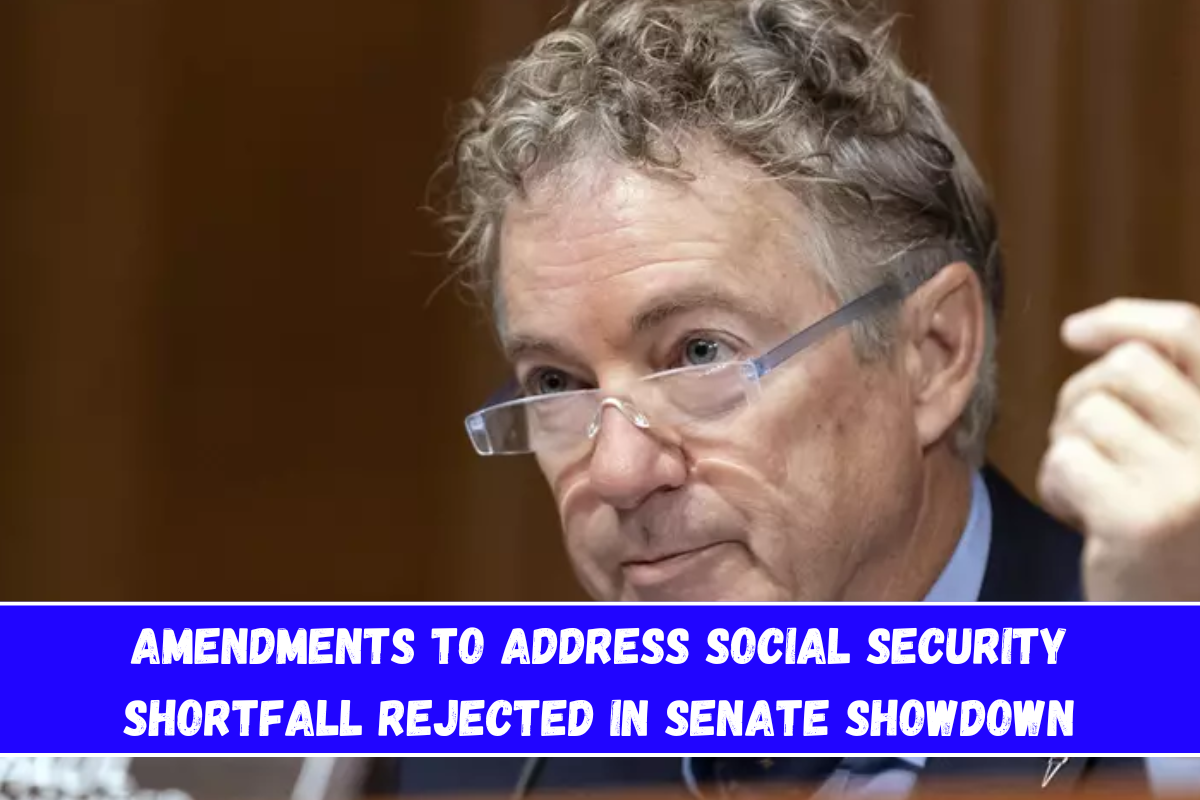Last week’s Senate votes on proposed Social Security reforms highlight how challenging Congress will find it to solve the program’s financial issues.
Three amendments intended to pay for all or part of the roughly $200 billion cost of a bill to restore full Social Security benefits for an estimated 2.1 million federal workers and retirees were turned down by the Senate On a 76-20 vote, the measure passed.
By half a year, the proposal is expected to hasten the 2035 insolvency date for Social Security trust funds. Republican senators proposing the revisions claimed they wanted to avoid since program bankruptcy would result in reduced payments for all.
“Everyone receives a 20% cut in 2033 or 2034, Sen. Rand Paul, Kentucky Republican remarked. For someone living on $700 a month, falling to $550 or $540 represents a significant decline. And nobody around here gives any thought. Their only concern is does it feel good? Allow us to give folks something. Let us borrow still more money.
Mr. Paul proposed a change to totally offset the bill’s cost. For the next 12 years, his suggestion would progressively increase the Social Security benefit retirement age by three months a year.
“It’s the first amendment, I believe in 15 or 20 years that addresses Social Security reform,” he informed reporters before the vote.
Should the idea be a gauge of legislators’ will to implement Social Security changes, it was clearly rejected.
The plan clearly failed if it was a test of legislators’ will to implement Social Security reforms.
Along with Republican Sens. Mike Lee of Utah and Cynthia Lummis of Wyoming, Mr. Paul was one of just three senators to back the amendment.
Senate Majority Leader Charles E. Schumer, New York Democrat, remarked that it “came close” following Mr. Paul’s amendment failing 3-93.
The underlying measure eliminates the Government Pension Offset (GPO), which lowers Social Security spousal payments, and the Windfall Elimination Provision (WEP), therefore reducing Social Security benefits for workers with government pensions.

Texas Republican Sen. Ted Cruz proposed an alternative amendment that would modify the formula for calculating benefits under the clause to one that alters wages depending on the proportion paid to Social Security payroll taxes, instead of undoing WEP.
According to Mr. Cruz, the present WEP system unfairly affects retired government employees including teachers, police officials, and firefighters. ” fixes the inequity of the windfall elimination provision but does so at a cost of only $25 billion instead of $200 billion,” he stated.
Though Mr. Cruz’s concept attracted significantly more support than Mr. Paul’s, it nevertheless failed 32–64.
Sen. Michael Crapo, who will be chairman of the Finance Committee next month, last spoke in submitting an amendment. According to the Idaho Republican’s plan, WEP and GPO would have been repealed until Congress later changed to counteract their effect on Social Security trust funds.
It also fell, 34-62.
Democrats who pushed senators to vote against the changes often claimed that the chamber lacked time to change the measure as it was the final in a sequence of votes to dissolve the existing Congress. The House had already left for the holidays; the Senate changed it and returned it; so, the House would not have a chance to review it.
Oregon Democrat Ron Wyden, chairman of Senate Finance, said supporting the changes essentially votes to kill the package.
Still, it seems doubtful that the results of the amendment votes would have been different had the Senate had time to send the measure back to the House.
Furthermore, even if the adjustments had been embraced, such Social Security improvements were meager in comparison to what will be required to prevent the trust fund from imploding.
Mr. Paul said he originally presented his idea to progressively raise the retirement age for Social Security payouts in 2011, and its possible influence has faded over time as more pensioners have burdened Social Security.
It would have corrected two-thirds of Social Security’s 2011 shortfall. Now, he said, it purchases one year. “Us doing nothing, sticking our head in the sand, we’ve got so far behind that if we do it now.. you still have this enormous problem.”






Leave a Reply